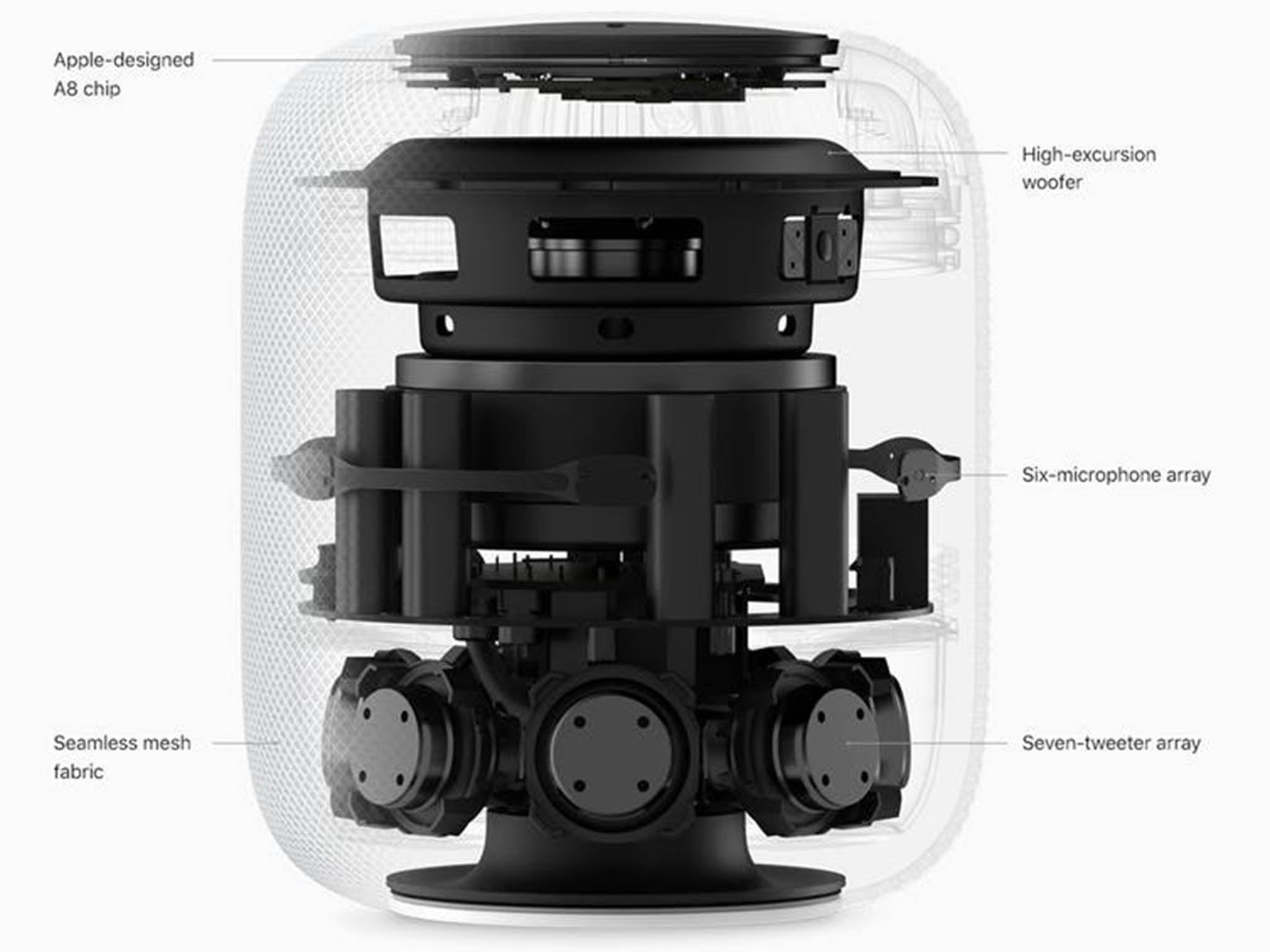Apple HomePod is already losing the smart speaker battle
Apple’s answer to Amazon’s Echo might be a technological marvel, but the HomePod is losing the smart home tech race. And it’s all because the IT giant refuses to share
The war for your digital home is waging. Apple has finally followed Amazon, Google and Microsoft by launching a smart speaker with a voice-controlled artificial intelligence assistant.
Yet even though the “HomePod” is another technological marvel, there’s a chance Apple is already losing the battle.
The competition isn’t just through the sound quality of the speaker – but the other things that users can do with it. The most common requests to AI personal assistants such as Apple’s Siri are reportedly to play music, read the weather forecast and set timers or reminders.
But the capabilities of these assistants are increasing at lightning speed. This doesn’t just rely on the sophistication of the artificial intelligence involved but also what other technology the assistant can link to. And given Apple’s tendency to reject open connections to other company’s systems, it may find it has some serious catching up to do.
Apple’s HomePod is entering an already busy marketplace. Probably the most famous smart speaker is Amazon’s Echo, which runs the AI assistant Alexa. Because Amazon opened up its system for anyone to write software programmes for it, Alexa now has over 25,000 specific capabilities or “skills” in its US version alone, up from 5,000 just over a year ago. It can now read out recipes, order a pizza, turn on the lights or tell jokes. Partly because it was the first major smart speaker released, Echo has a greater depth of capabilities than any of its rivals.

Google Home, which features the creatively named Google Assistant, can link to multiple Google accounts so you can check your calendar or manage reminders. But it also links to your Android phone so you can make calls through the speaker or view on a screen the results of internet searches you ask it to make.
Microsoft has partnered with electronics manufacturer Harman Kardon to create a speaker called Invoke powered by Microsoft’s Cortana assistant. It also allows you to check your calendar and reminders, as well as make Skype calls, but only for one Microsoft account. Its AI capabilities are also not nearly as developed as either Google Assistant or Amazon Alexa.
Apple is taking a different approach to its rivals, hoping to corner the higher end of the smart speaker market and encourage consumers to part with more money, as it has done very successfully with its other products. The HomePod delivers high quality sound using seven physical speakers arranged in a circle to create a virtual stereo effect, directing different parts of the sound in different directions.
But HomePod isn’t really a smart speaker – not yet at least. Siri currently can’t deliver on one of those three most critical abilities, as it can only set one timer at a time. Overall it has far fewer skills than Alexa, Google Assistant or even Cortana and only works with a very small number of third-party apps.
It’s easy to assume that Apple’s technological and financial might will allow it to catch up. But the way its underlying system operates may not make it so easy. Google Assistant is available on all Android and iOS devices, as well as Chromebooks and third-party devices such as headphones. Cortana comes standard on Windows machines but it’s also available for download on Android and iOS.
Alexa is accessible through some third-party devices such as speakers (although to a lesser extent than Assistant or Cortana) and will soon be available on some Windows PCs. The most basic Amazon Echo speaker is also available for less than US$40 (£40 in the UK), making it significantly cheaper than US$349 (£252) HomePod. This means it is very easy for consumers to try an Echo out or even place multiple devices around their home, helping spread the technology more widely.
Apple’s Siri, on the other hand, is not available on any third-party devices. So while its rivals are spreading their AI into every corner of our lives, Apple is keeping it locked up in the company’s expensive products. And any software makers that are allowed into Apple’s walled garden have to custom develop their products for the underlying Apple platform but can’t even deploy them across all devices. Apple would need to mobilise a considerable number of developers to enlarge its capabilities beyond this.
The competition for voice-controlled smart devices has really only just begun, and smart homes will soon be followed by AI in our cars and offices. As such, each player has its own advantages. Amazon can get anything delivered to you. Google is already known for being able to answer almost any question and help you get from A to B. Microsoft products can be found in almost every workplace.
While these firms each want to become your assistant everywhere, Apple is betting instead on your love of sound quality. But getting the right answers matters to consumers – and at the moment it looks like Siri doesn’t even understand the questions. If Apple continues to stick to its closed system, it’s hard to see how it will ever start to win again.
Bettina Büchel is a professor of strategy and organisation at IMD Business School. This article first appeared on The Conversation (theconversation.com)
Join our commenting forum
Join thought-provoking conversations, follow other Independent readers and see their replies
Comments
Bookmark popover
Removed from bookmarks